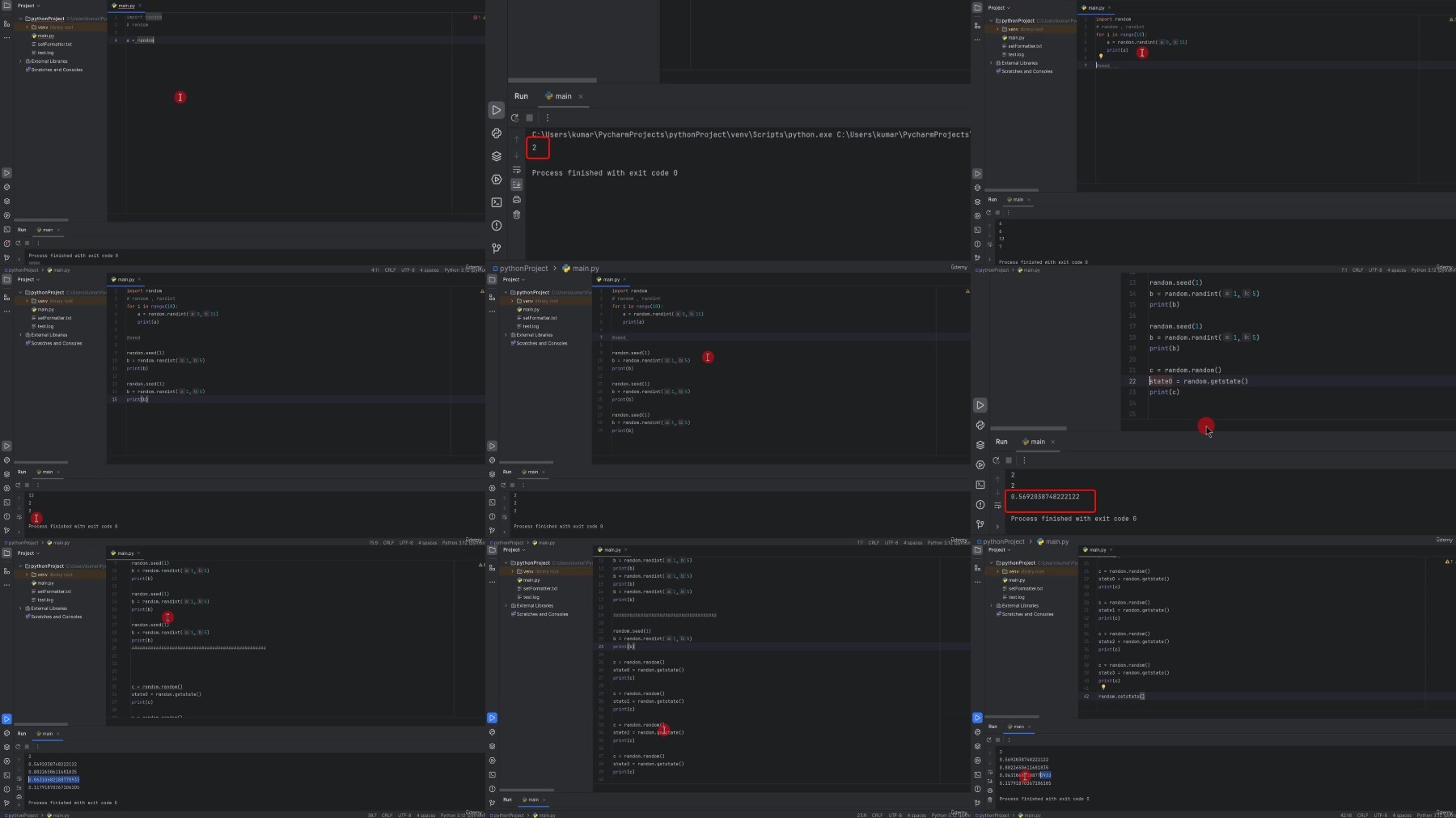Most Commented
Pyuvm Series Part 1 : Python Fundamentals




Description material

Pyuvm Series Part 1 : Python Fundamentals
Published 5/2024
MP4 | Video: h264, 1920x1080 | Audio: AAC, 44.1 KHz
Language: English | Size: 749.74 MB | Duration: 3h 50m
Step by Step Guide from Scratch
What you'll learn
Fundamentals of Python
Basics of Datatypes and opeartors
Fundamentals fo Loops
Fundamentals of List, Tuple and Dictionary
Using extension in python
Requirements
Fundamentals of C, Digital Electronics
Description
In today's rapidly evolving landscape of Very Large Scale Integration (VLSI) engineering, proficiency in Python programming has become indispensable. This comprehensive course is meticulously crafted to empower VLSI engineers with the foundational skills necessary to navigate the complexities of modern VLSI design and verification processes. Python, renowned for its versatility and power, stands at the forefront of programming languages, offering a robust toolkit that aligns seamlessly with the unique demands of VLSI engineering.The course is strategically designed to address the specific needs and challenges inherent in the VLSI domain. Participants will embark on a journey that not only introduces them to the fundamental principles of Python programming but also delves deeply into its tailored applications within VLSI design and verification. As technology continues to advance, Python has emerged as a linchpin in the VLSI engineer's toolkit, providing a flexible and efficient platform for addressing the intricate demands of Very Large Scale Integration.Python's ascendancy in VLSI engineering is underscored by its ability to enhance productivity, automate routine tasks, and seamlessly integrate with existing hardware description languages (HDLs) and simulation tools. As the VLSI landscape continues to demand innovation and efficiency, this course serves as a crucial bridge, empowering engineers to harness the full potential of Python in their daily workflows.
Overview
Section 1: Print and Logging
Lecture 1 How to get IDE
Lecture 2 How to use IDE
Lecture 3 Understanding Print P1
Lecture 4 Understanding Print P2
Lecture 5 Code
Lecture 6 Logging P1
Lecture 7 Code
Lecture 8 Logging P2
Lecture 9 Logging P3
Lecture 10 Code
Section 2: Variables
Lecture 11 Variables P1
Lecture 12 Variables P2
Lecture 13 Variables P3
Lecture 14 Variables P4
Lecture 15 Variables P5
Lecture 16 Code
Lecture 17 Used Cases
Section 3: Operators
Lecture 18 Arithmetic Operators
Lecture 19 Code
Lecture 20 Logical Operator P1
Lecture 21 Adding values in different radix
Lecture 22 Understanding F-string
Lecture 23 Code
Lecture 24 Logical Operator P2
Lecture 25 Code
Lecture 26 Understanding Sign Magnitude representation P1
Lecture 27 Understanding Sign Magnitude representation P2
Lecture 28 Understanding Shift Operator
Lecture 29 Assignment + Comparison Operator
Lecture 30 Code
Section 4: Loops
Lecture 31 IF ELSE P1
Lecture 32 IF ELSE P2
Lecture 33 Code
Lecture 34 for loop
Lecture 35 break and continue
Lecture 36 Code
Lecture 37 while loop
Lecture 38 Code
Lecture 39 Used Cases P1
Lecture 40 Used Cases P2
Section 5: Collection of Data
Lecture 41 Lists P1
Lecture 42 Lists P2
Lecture 43 Lists P3
Lecture 44 Code
Lecture 45 Lists P4
Lecture 46 Lists P5
Lecture 47 Code
Lecture 48 Lists P6
Lecture 49 Lists Used cases
Lecture 50 Tuple P1
Lecture 51 Tuple P2
Lecture 52 Tuple P3
Lecture 53 Tuple P4
Lecture 54 Tuple P5
Lecture 55 Code
Lecture 56 Tuple Used Cases
Lecture 57 Dictionary P1
Lecture 58 Dictionary P2
Lecture 59 Dictionary P3
Lecture 60 Code
Section 6: Functions
Lecture 61 Function without arguments
Lecture 62 Code
Lecture 63 Function with arguments
Lecture 64 Code
Lecture 65 Funcation with arbitary arguments p1
Lecture 66 Funcation with arbitary arguments p2
Lecture 67 Funcation with arbitary arguments p3
Lecture 68 Code
Lecture 69 Function with arbitary Keyword arguments
Lecture 70 Code
Lecture 71 Power of function P1
Lecture 72 Power of function P2
Lecture 73 Decorators
Lecture 74 Code
Section 7: Random Library
Lecture 75 Random Number Generator P1
Lecture 76 Code
Lecture 77 Random Number Generator P2
Lecture 78 Code
Section 8: Bonus Series Course
Lecture 79 Bonus Course
Anyone interested in exploring python for RTL Verification

What you'll learn
Fundamentals of Python
Basics of Datatypes and opeartors
Fundamentals fo Loops
Fundamentals of List, Tuple and Dictionary
Using extension in python
Requirements
Fundamentals of C, Digital Electronics
Description
In today's rapidly evolving landscape of Very Large Scale Integration (VLSI) engineering, proficiency in Python programming has become indispensable. This comprehensive course is meticulously crafted to empower VLSI engineers with the foundational skills necessary to navigate the complexities of modern VLSI design and verification processes. Python, renowned for its versatility and power, stands at the forefront of programming languages, offering a robust toolkit that aligns seamlessly with the unique demands of VLSI engineering.The course is strategically designed to address the specific needs and challenges inherent in the VLSI domain. Participants will embark on a journey that not only introduces them to the fundamental principles of Python programming but also delves deeply into its tailored applications within VLSI design and verification. As technology continues to advance, Python has emerged as a linchpin in the VLSI engineer's toolkit, providing a flexible and efficient platform for addressing the intricate demands of Very Large Scale Integration.Python's ascendancy in VLSI engineering is underscored by its ability to enhance productivity, automate routine tasks, and seamlessly integrate with existing hardware description languages (HDLs) and simulation tools. As the VLSI landscape continues to demand innovation and efficiency, this course serves as a crucial bridge, empowering engineers to harness the full potential of Python in their daily workflows.
Overview
Section 1: Print and Logging
Lecture 1 How to get IDE
Lecture 2 How to use IDE
Lecture 3 Understanding Print P1
Lecture 4 Understanding Print P2
Lecture 5 Code
Lecture 6 Logging P1
Lecture 7 Code
Lecture 8 Logging P2
Lecture 9 Logging P3
Lecture 10 Code
Section 2: Variables
Lecture 11 Variables P1
Lecture 12 Variables P2
Lecture 13 Variables P3
Lecture 14 Variables P4
Lecture 15 Variables P5
Lecture 16 Code
Lecture 17 Used Cases
Section 3: Operators
Lecture 18 Arithmetic Operators
Lecture 19 Code
Lecture 20 Logical Operator P1
Lecture 21 Adding values in different radix
Lecture 22 Understanding F-string
Lecture 23 Code
Lecture 24 Logical Operator P2
Lecture 25 Code
Lecture 26 Understanding Sign Magnitude representation P1
Lecture 27 Understanding Sign Magnitude representation P2
Lecture 28 Understanding Shift Operator
Lecture 29 Assignment + Comparison Operator
Lecture 30 Code
Section 4: Loops
Lecture 31 IF ELSE P1
Lecture 32 IF ELSE P2
Lecture 33 Code
Lecture 34 for loop
Lecture 35 break and continue
Lecture 36 Code
Lecture 37 while loop
Lecture 38 Code
Lecture 39 Used Cases P1
Lecture 40 Used Cases P2
Section 5: Collection of Data
Lecture 41 Lists P1
Lecture 42 Lists P2
Lecture 43 Lists P3
Lecture 44 Code
Lecture 45 Lists P4
Lecture 46 Lists P5
Lecture 47 Code
Lecture 48 Lists P6
Lecture 49 Lists Used cases
Lecture 50 Tuple P1
Lecture 51 Tuple P2
Lecture 52 Tuple P3
Lecture 53 Tuple P4
Lecture 54 Tuple P5
Lecture 55 Code
Lecture 56 Tuple Used Cases
Lecture 57 Dictionary P1
Lecture 58 Dictionary P2
Lecture 59 Dictionary P3
Lecture 60 Code
Section 6: Functions
Lecture 61 Function without arguments
Lecture 62 Code
Lecture 63 Function with arguments
Lecture 64 Code
Lecture 65 Funcation with arbitary arguments p1
Lecture 66 Funcation with arbitary arguments p2
Lecture 67 Funcation with arbitary arguments p3
Lecture 68 Code
Lecture 69 Function with arbitary Keyword arguments
Lecture 70 Code
Lecture 71 Power of function P1
Lecture 72 Power of function P2
Lecture 73 Decorators
Lecture 74 Code
Section 7: Random Library
Lecture 75 Random Number Generator P1
Lecture 76 Code
Lecture 77 Random Number Generator P2
Lecture 78 Code
Section 8: Bonus Series Course
Lecture 79 Bonus Course
Anyone interested in exploring python for RTL Verification

Warning! You are not allowed to view this text.
Warning! You are not allowed to view this text.
Warning! You are not allowed to view this text.
Join to our telegram Group
Information
Users of Guests are not allowed to comment this publication.
Users of Guests are not allowed to comment this publication.
Choose Site Language
Recommended news
Commented


![eM Client Pro 9.2.1735 Multilingual [Updated]](https://pikky.net/medium/wXgc.png)






![Movavi Video Editor 24.0.2.0 Multilingual [ Updated]](https://pikky.net/medium/qhrc.png)

